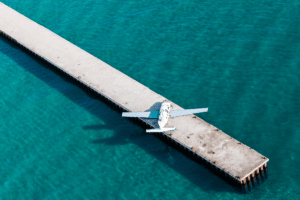River and bar pilots are specially-trained mariners that guide vessels through congested or hazardous waters. They are familiar with local waterways and handle ships with expertise. Inevitably, however, river and bar pilots are injured while performing their jobs as a result of accidents. Often, these accidents are caused by the negligence of others and can lead to serious injuries or loss of life.

Hazardous Duty: The Risks of a River or Bar Pilot’s Job
Maritime workers, especially mariners who serve on vessels, have well-paying but dangerous jobs. They work in an environment where the smallest error can be potentially disastrous. Seamen live and do their jobs in vessels jammed with equipment, walk on decks that can get slippery easily, and clamber up and down ladders that can become treacherous if they are not properly maintained.
River and bar pilots usually work on pilot boats in harbors or near river mouths. These are waterways which are either heavily trafficked by large ships of all types or, in the case of river mouths, tricky to navigate because of the river’s current flowing into a lake or the sea. Pilots usually clamber aboard the larger vessel via pilot ladders. Some pilots, such as those that work on the Columbia River, board larger container ships or oil tankers from helicopters. Most, however, still board from pilot boats. Once aboard, they take control of the large ship and guide it to its final destination. Except in cases involving the Panama Canal, the ship’s captain is still legally in command of a ship even if a pilot is giving helm commands or engine room orders.
Pilots must also navigate their boats or the ships they are guiding by day and night and in all kinds of weather. This requires that they be familiar with their assigned area of responsibility, especially in tricky-to-navigate rivers.
However, even under the best of circumstances, accidents occur. Many pilots are seriously injured or killed on the job every year.
Examples of Accidents Involving River and Bar Pilots
In January of 2006, Capt. Kevin Murray, a 50-year-old Columbia River Bar pilot, was killed when he fell into the sea while leaping from the log carrier Dry Beam to the pilot boat Chinook. Murray was jumping from the larger ship to the pilot boat when he fell into the water. The Chinook had lurched to one side due to choppy seas and Murray missed the deck. In a federal Jones Act lawsuit filed by Murray’s widow, the Chinook ran over the pilot, causing severe injuries which caused his death.
In March of 2012, Capt. Deb Dempsey, an experienced Columbia River pilot, tripped and fell overboard while returning to her pilot boat, the Chinook, after returning control of a Greek freighter back to the captain. Dempsey slipped on the ship’s pilot ladder, which was made of rope, and fell into the ocean off the Oregon coast near Astoria. Luckily, the Chinook’s crew pulled her to safety from the dark waters.
In March of 2013, 73-year-old Capt. Frank Knowles, a Coast Guard veteran and a pilot in Panama City, Florida, was killed when he fell into the water while attempting to board a container ship. Knowles, a pilot since 1976, was climbing aboard the Pipit Arrow when he fell off the ship’s jacob ladder. An effort to rescue Knowles was made, but the early morning darkness made it hard for rescuers to spot the pilot. His body was recovered two hours later. Knowles had fallen off a ship before, but that incident took place in daylight and he was plucked out of the water quickly.
Common Injuries Caused by Accidents Involving Maritime Pilots
The most common injuries suffered by river bar pilots are fractures caused by falls, especially while transferring from one vessel to another via pilot ladders or being lowered from a helicopter. Injuries to the head, neck, and back are also prevalent in accidents involving pilots. Jacob’s ladders, ladder wells, and decks can be treacherous if they are not well-maintained or if they’re made slippery by spilled oil or other slick substances. Falls overboard can also cause these injuries, and in extreme cases can result in fatal drownings.
Compensation for Injuries in River or Bar Pilot Accidents
If river or bar pilots are injured on the job as a result of negligence or unseaworthiness issues, they may be eligible for compensation under general maritime law, the Jones Act, and in some cases, the Longshore and Harbor Workers’ Act. Mariners may receive financial compensation for current and future medical expenses, rehabilitation costs, present and future lost wages, and pain and suffering.